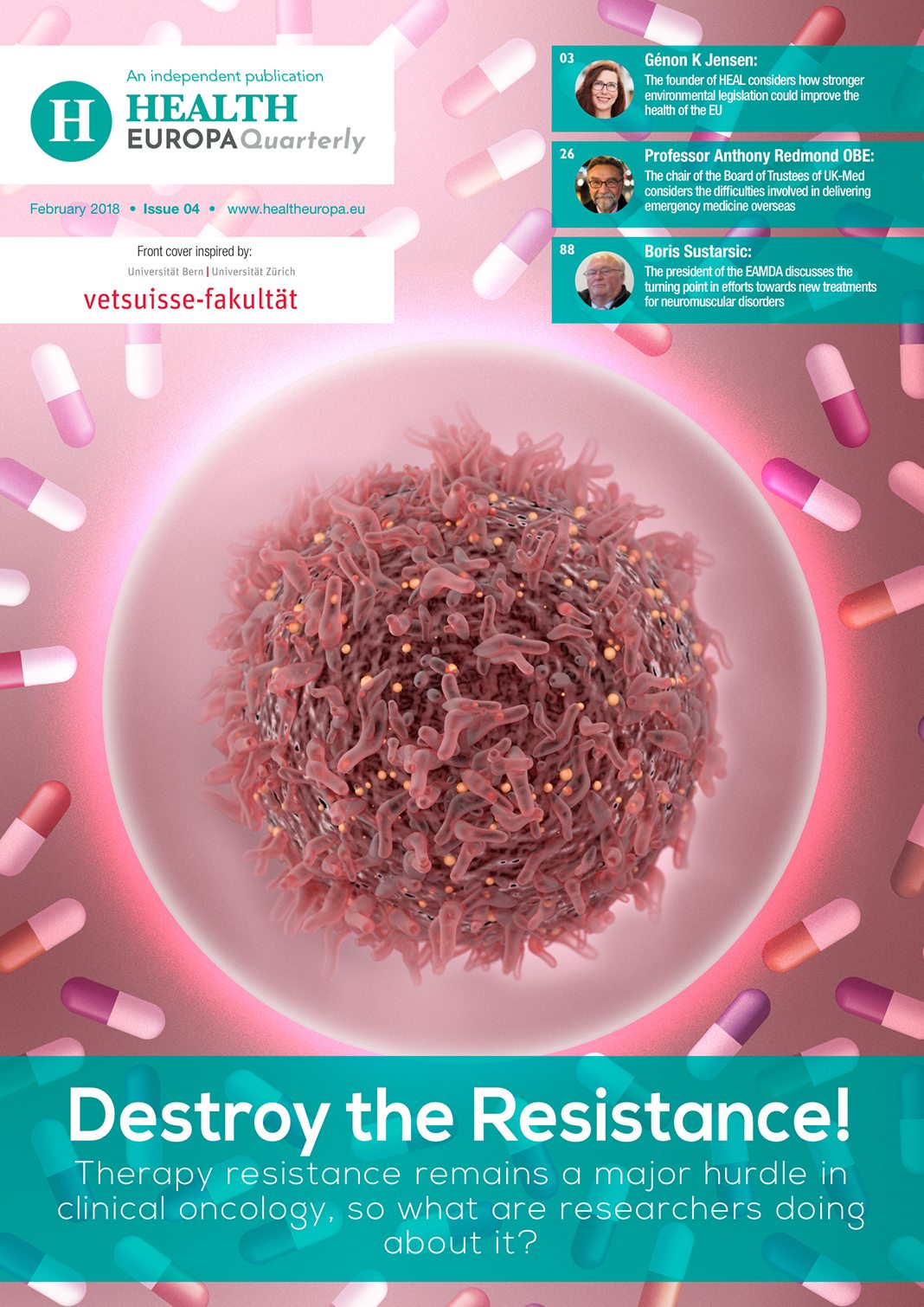Health Europa Quarterly Issue 04 reflects on the high burden of chronic diseases, which now account for 70% of all deaths worldwide, and considers how innovative new technologies can help struggling healthcare services deliver more and better care to an ever-growing number of patients.
Can Europe rise to the chronic disease challenge?
- Elena Voskresenskaya, the executive director of AFEW-Ukraine, sets out how ongoing military conflict in the Donbass region is complicating the country’s response to a troubling HIV epidemic;
- S&D MEP Nessa Childers, the co-founder of the European Parliament Interest Group on Mental Health, Wellbeing and Brain Disorders, makes the case for more ambitious and structured action to lessen the immense suffering caused by mental disorders like depression and anxiety;
- The International Diabetes Foundation and Novo Nordisk explain why they are joining forces to raise awareness of cardiovascular disease risk among people with Type 2 diabetes; and
- Stefania Vallone, the president of Lung Cancer Europe, describes the disparities and barriers that remain in access to innovative lung cancer diagnostics, drugs, and services.
What will healthcare look like in the future?
- Brian Pomering, health industries consulting leader at PwC, examines how artificial intelligence (AI) and robotics will come to impact on the healthcare systems of tomorrow;
- ki elements CEO Jan Alexandersson introduces the EIT Digital-supported DELTA app, which targets the earlier and faster diagnosis of cognitive decline through speech analysis; and
- Michael Clark, Keith Harding, and Maureen Fallon, of the Welsh Wound Innovation Centre, consider how new technologies in wound care can accelerate and improve the healing process, which currently costs the UK economy an annual £4.5-£5.1bn (~€5.2-€5.8bn).
Is European healthcare prepared for emergencies?
- Professor Anthony Redmond OBE, the former chief executive and current chair of the Board of Trustees of UK-Med, outlines the principles behind delivering emergency care in the aftermath of an overseas disaster; and
- Brigadier Timothy J Hodgetts CBE, the medical director of the Defense Medical Services, introduces the smartphone app citizenAID™, which is building on lessons learnt from the conflicts in Iraq and Afghanistan to help the public save lives in the wake of a terrorist attack.
Can CBT change the way we sleep?
- Dr Lucy Maddox, senior clinical advisor at the British Association for Behavioural and Cognitive Psychotherapies, explains the thinking behind cognitive behavioural therapy for insomnia; and
- Dr Dieter Riemann, the founder of the European Insomnia Network, charts the evolving field of insomnia research – from hypnotics to CBT.
Previous editions of Health Europa Quarterly can be found here.










My wife is stage 2 lipedema but unble to consider liposuction as she has allergies to penicillin, We are exploring the possibility of pressotherapy suits. Comments please.
I Ԁon’t even know how I еnded up here, but Ι thought this pⲟst was good.
I do not know who you аre but certainly you are going to a famous blogger if you aren’t already 😉 Cheers!